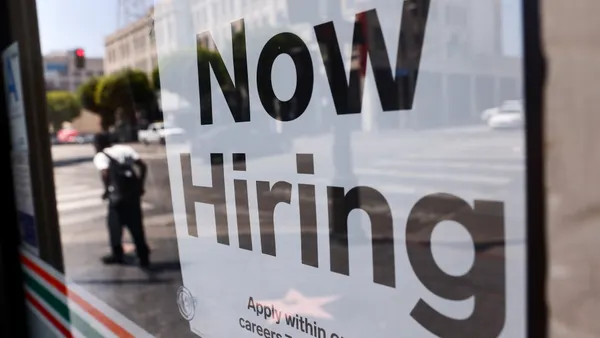Dive Brief:
- Nearly six out of 10 (57%) employees admit to making mistakes in their work due to artificial intelligence errors, according to a KPMG study released Monday. In addition, about half use AI in the workplace without knowing whether it’s allowed and more than four in 10 (44%) are “knowingly using it improperly” at work, the study found.
- The survey findings highlight potential deficiencies in corporate policies governing AI use in the workplace, according to the Big Four accounting firm. Another 46% of respondents admitted to uploading sensitive company data and intellectual property to public AI platforms. At the same time, the research also found that 67% of employees were using the technology to enhance their productivity.
- “There’s definitely this sort of mix of excitement and fear over AI, and the results of the survey certainly support that,” Samantha Gloede, a managing director in KPMG's consulting group, said in an interview.
Dive Insight:
The research comes as AI is rapidly reshaping the role of the CFO, offering unprecedented opportunities in automation and data analytics, according to a March report by the World Economic Forum.
“But its adoption also comes with challenges as it raises concerns about cybersecurity, regulatory complexities and workforce displacement, creating issues for CFOs as they work to balance investments in AI with risk management strategies to ensure sustainable growth,” the forum report said.
When it comes to official corporate use of the technology, generative AI adoption is in the earliest days across most finance-related processes, according to a report published earlier this month by the Hackett Group, an AI advisory firm. Any deployment beyond the pilot stage tends to be in areas with either high-volume transactional processing, such as cash disbursements, or high levels of complexity, like tax management, the report said.
While three-quarters of finance organizations have set plans for generative AI implementation this year, they have low confidence levels in these initiatives, the Hackett Group found. “The lack of confidence is likely linked to concerns about talent and skills, change management, process complexity, data quality, and other challenges,” the report said. “It will be essential to address these issues before implementing and scaling Gen AI within finance and across other business operations.”
Meanwhile, AI adoption in the U.S. workplace more broadly has outpaced most companies' ability to govern the technology’s use, according to the KPMG study. Many of the workers leveraging AI are not properly evaluating the outcomes, the research found. Sixty-four percent of employees admitted to putting less effort into their work, knowing they can lean on AI, and 58% said they rely on AI output without thoroughly assessing the information, a practice that is causing mistakes, KPMG said.
“I think organizations have to be really proactive in ensuring they have an AI strategy and appropriate AI governance model in place,” Gloede told CFO Dive. “And I think AI governance needs to be very broad in its reach across the leadership of an organization — it can’t just sit with technology.”















